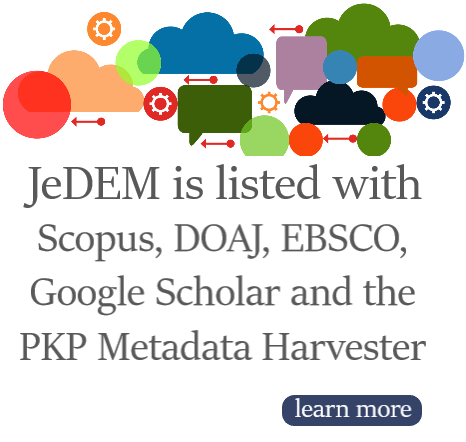Open Access to Research. Changing Researcher Behavior Through University and Funder Mandates.
DOI:
https://doi.org/10.29379/jedem.v3i1.54Keywords:
open access, self-archiving, research impact, open access mandates, metrics, citationsAbstract
The primary target of the worldwide Open Access initiative is the 2.5 million articles published every year in the planet's 25,000 peer-reviewed research journals across all scholarly and scientific fields. Without exception, every one of these articles is an author give-away, written, not for royalty income, but solely to be used, applied and built upon by other researchers. The optimal and inevitable solution for this give-away research is that it should be made freely accessible to all its would-be users online and not only to those whose institutions can afford subscription access to the journal in which it happens to be published. Yet this optimal and inevitable solution, already fully within the reach of the global research community for at least two decades now, has been taking a remarkably long time to be grasped. The problem is not particularly an instance of "eDemocracy" one way or the other; it is an instance of inaction because of widespread misconceptions (reminiscent of Zeno's Paradox). The solution is for the world's research institutions and funders to (1) extend their existing "publish or perish" mandates so as to (2) require their employees and fundees to maximize the usage and impact of the research they are employed and funded to conduct and publish by (3) depositing their final drafts in their Open Access (OA) Institutional Repositories immediately upon acceptance for publication in order to (4) make their findings freely accessible to all their potential users webwide. OA metrics can then be used to measure and reward research progress and impact; and multiple layers of links, tags, commentary and discussion can be built upon and integrated with the primary research.Downloads
Metrics
Downloads
Published
How to Cite
Issue
Section
License

JeDEM is a peer-reviewed, open-access journal (ISSN: 2075-9517). All journal content, except where otherwise noted, is licensed under the CC BY-NC 4.0 DEED Attribution-NonCommercial 4.0 International













